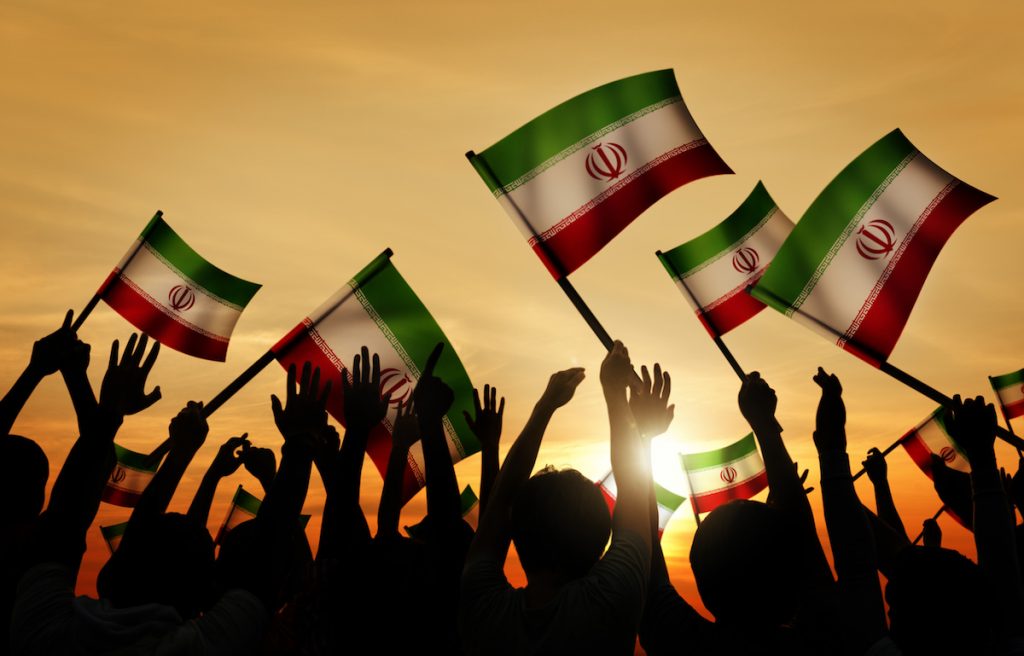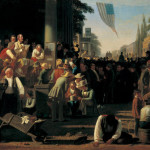To the people of Iran:
We are Americans, each of whom has chaired the United States Commission on International Religious Freedom. Each of us has, moreover, publicly advocated the freedom of prisoners of conscience and persecuted people of all faiths and beliefs in the Islamic Republic.
In that capacity, we have pressed the United States government to give priority to the rights and freedoms of persecuted Iranians in America’s dealings with the regime in Tehran.
Today we write to express solidarity and support for your courageous efforts to restore your nation’s dignity and put an end to the abuses and deprivation that the people of Iran have suffered. We are inspired by your bravery. We stand with you and call on our own government and governments and peoples throughout the world to support you.
Start your day with Public Discourse
Sign up and get our daily essays sent straight to your inbox.Governments and business firms who are in sympathy with the people of Iran and their aspirations to national dignity and freedom can, for example, assist in thwarting censorship and the efforts of the Tehran regime to shut down social media platforms, such as WhatsApp, by which the Iranian people can communicate with one another and with foreign journalists freely. Keeping open the corridors of communication through which information flows in all directions is vital. To that end, we call for robust funding by our government of technologies that will provide Iranians and others in closed societies safe and free access to the internet and social media platforms.
What’s more, human rights organizations, international journalists, governments, and embassies can assist the cause of Iranian freedom and self-determination by documenting and publicizing human rights offenses—detentions, beatings, murders—committed by the Tehran authorities against peaceful protestors. It is important for the world and for the people of Iran to be apprised in a timely manner of offenses that the government will commit and, indeed, is already committing.
A clear signal should be sent that human rights issues—above all, the regime’s treatment of dissidents—will be at the top of the agenda in any state-to-state negotiation, be it diplomatic or economic.
When Iranians rose up against their oppressors in 2009, too few supported them in a sustained and meaningful way. Please be assured that in 2018 we are doing everything we can to ensure your freedom.
We pray that your courageous efforts will lead swiftly to the realization of your aspirations, which we heartily endorse, for a free, peaceful, and prosperous Iran.
Signed,
Elliott Abrams
Senior Fellow for Middle Eastern Studies, Council on Foreign Relations
USCIRF Chair, 2000-2001
Preeta Bansal
CEO, Social Emergence Corporation and Visiting Scholar, MIT Media Lab
USCIRF Chair, 2004-2005
Felice D. Gaer
Director, Jacob Blaustein Institute for the Advancement of Human Rights
USCIRF Chair, 2002-2003, 2006-2007, and 2008-2009
Robert P. George
McCormick Professor of Jurisprudence, Princeton University and Herbert W. Vaughan Senior Fellow, Witherspoon Institute
USCIRF Chairman, 2013-2014 and 2015-2016
Leonard Leo
Executive Vice President, Federalist Society for Law and Public Policy
USCIRF Chair, 2009-2010, 2010-2011, and 2011-2012
Daniel Mark
Assistant Professor of Political Science, Villanova University and Visiting Fellow, University of Notre Dame
USCIRF Chairman, 2017-18
Thomas J. Reese, S.J.
Senior Analyst, Religion News Service
USCIRF Chair, 2016-2017
Katrina Lantos Swett
President, Lantos Foundation for Human Rights and Justice
USCIRF Chair, 2012-2013 and 2014-2015
Ambassador Rabbi David Saperstein
Senior Fellow, Georgetown University’s Berkley Center on Religion, Peace and Foreign Policy and the Foreign Service School’s Center for Jewish Civilization
USCIRF Chair, 1999-2000
Michael K. Young
President, Texas A&M University
USCIRF Chair, 2001-2002 and 2003-2004
(Affiliations are for purposes of identification.)













